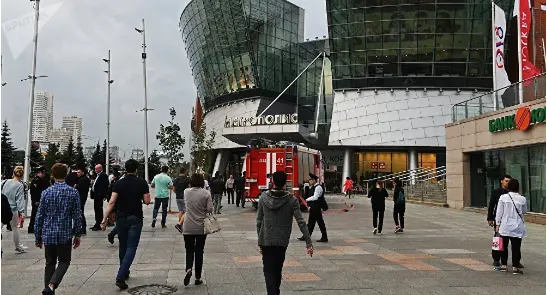Italian constitutional reforms has entered a decisive phase this week, with the Senate assembly expected to receive the draft law between Wednesday and Thursday and thus begin discussing the future shape of the country.
The political overhaul would include a demotion of the Upper House of the Parliament and, on a separate draft, a new electoral law.
While major parties seemed still quite at odds and not really trustful of each other's true strategy, the draft law regarding the Upper House demotion was being scrutinised by the Constitutional Affairs Committee, a body in charge of examining the text amendment before turning it over to Senate for final discussion and vote.
The committee's scrutiny would be concluded before Wednesday, since the Senate has officially scheduled the discussion to begin on July 9th. Even if small delays might still occur, analysts were unanimous in describing this week as 'crucial'.
"After much political talk, we will finally be able to count votes," Giovanni Orsina, deputy director of the School of Government at LUISS-Guido Carli University in Rome, told Xinhua.
This specific reform would imply cutting Senate's powers and size, and as such, it will indeed have impact on the senators' life. "We will now see if the senators' behaviour during the vote will correspond to their theoretical commitment," Orsina added.
All media kept a watchful eye on what was going on both inside and outside government buildings in Rome, and were alert to every change of heart or declaration of political leaders.
"A breakthrough on constitutional reforms is one step away," left-leaning La Repubblica newspaper wrote in Tuesday, commenting the latest bickering and consequent 'detente' between Prime Minister Matteo Renzi's Democratic Party (PD) and the opposition Five Star Movement (M5S).
More cautiously, the Corriere della Sera daily wrote of "tensions between M5S and PD on reforms", and highlighted how President of Republic Giorgio Napolitano appealed to political forces to "avoid further delays over reforms".
Indeed, the PD on Monday cancelled a meeting with M5S representatives to discuss the constitutional reforms, and each party blamed the other for the failure. M5S agreed then to give written answers over 10 crucial points PM Renzi's party had submitted in order to find a common ground for dialogue, but it remained unclear whether the two parties would go any further.
However, the centre-left PD has to run negotiations on two fronts. A preliminary agreement over a new electoral law and the demotion of the Senate was in fact reached in January between Matteo Renzi and Forza Italia (FI) opposition leader Silvio Berlusconi, who is still regarded as the leading figure within the centre-right despite being convicted for tax fraud and accordingly barred from public office.
According to some analysts, the setback between PD and M5S movement on Monday might now result in PM Renzi focusing his efforts in finalising the deal with Berlusconi. Some also observed M5S would not be really interested in contributing to reforms but rather in breaking the political 'embrace' between centre-left ruling PD and centre-right FI.
"M5S wants to break the deal between PD and FI," editorialist with the Corriere della Sera Massimo Franco wrote on Tuesday. "M5S is trying to implement a 'wedge strategy' in order to creep into possible cracks of the Renzi-Berlusconi axis on institutional reforms" Franco added.
Yet, Professor Orsina suggested that even if M5S's real strategy was really only tactical, its taking part in the discussion might have a useful result anyway.
"This is like a complex example of the game theory, and M5S's presence is the real new element of the game," the analyst said.
Neither Berlusconi nor M5S is really interested in giving such relevant reforms to PM Renzi, Orsina added, but at the same time "both opposition parties fear that if they draw back from the table, the other one would gain ground and strike the deal with the Prime Minister".
 简体中文
简体中文

